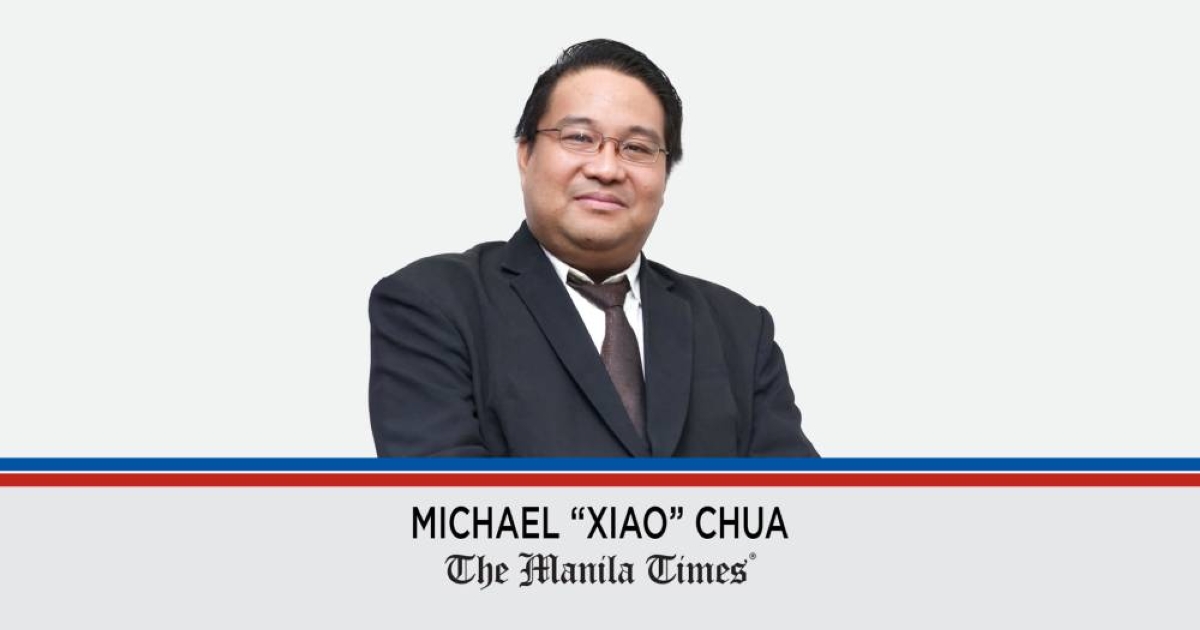
WHO BEGAN AMERICA'S ASIA PIVOT?
STAYING in some hotels around the country for my speaking engagements, I have been noticing a steady increase in the number of visiting United States servicemen. Of course, there have always been Balikatan exercises with the US since the time of President Joseph Estrada, but more so now, with the implementation of the Enhanced Defense Cooperation Agreement (EDCA) that allows the Americans to make use of some of our bases.
This reminded me of the time some decades ago, when there were actually US bases here, which were little US "territories" in our islands. You see, my father worked as a driver of one of these American personnel. Established during the onset of the American occupation here in the 1900s, the US bases (Clark, Subic and others) remained even after the US returned our independence because of the Cold War, a battle for a bigger global influence between the superpowers the United States and their allies and the Soviet Union and their satellites (the supposedly nonaligned, mostly developing countries, were called the Third World).
Although there was no shooting world war, there were bloody proxy wars that happened, especially here in Southeast Asia. Americans sent actual combatants to Korea and Vietnam because of the belief in the domino theory that if these countries fall to the communists, then the whole of Southeast Asia would fall, which would be detrimental to the overall security of the mainland United States, with the ghost of Pearl Harbor just behind them. This is where the US bases were needed by their troops for refueling and R&R.
It was the time when we felt the extreme significance of the Philippines in US foreign policy, to the point that they were meddling in our affairs. But after the Senate rejected the extension of the US bases treaty in 1991, there was a noticeable decrease in the Philippines' geopolitical importance to America.
Fast-forward to 2024, even after President Rodrigo Duterte's pivot to a friendlier relationship with China during his administration, the US is making us feel important again. President Joe Biden has invited President Bongbong Marcos in various meetings with other world leaders to talk about security in the region. We are, as we say, back on the radar.
Some may not realize it but the West Philippine Sea issue, although it is about our sovereign rights and national patrimony, is also part of a renewed larger showdown between superpowers. EDCA is just part of a larger US program of putting military installations in what is called the "first island chain," which include the archipelago of Japan, to deter China's expansion and a possible invasion of Taiwan (despite the strategic ambiguity that the US and the Philippines recognize Taiwan as part of China), an island so important to the Americans because it is one of the major sources of the world's microchips.
I always wondered for some time now who began this renewed Asia pivot by the Americans. The answer came while I was casually reading The New York Times White House correspondent Mark Landler's "Alter Egos: Hillary Clinton, Barack Obama and the Twilight Struggle Over American Power."
It was the Asean-US Post-Ministerial Conference in Hanoi, Vietnam, on July 23, 2010, that, according to Landler, the Asean ministers "urged China to accept a multilateral approach to settling these disputes rather than its preferred method of dealing with (read: strong-arming) the smaller countries one-on-one" when, as the last speaker, Hillary Rodham Clinton, fresh as the newly appointed Secretary of State, made a bold statement. The US was not taking sides in the conflict but after years in the sidelines, would now be at the forefront of trying to facilitate efforts to resolve them. "The United States has a national interest in freedom of navigation, open access to Asia's maritime commons and respect for international law in the South China Sea," she said.
It prompted the Chinese foreign minister Yang Jiechi, who was not warned about it as he should have been etiquette-wise, to quip to the Asean nations, "China is a big country, bigger than any other countries here." The statement did not only shock the Chinese, but also some top US diplomats like Richard Holbrooke, who was worried about a head-on with China and told Clinton, "Why would you do this? For years, we never took a position on the Spratly Islands."
Landler's book claimed that Clinton's vision of America's power usually clashed with that of her president. Obama, partly raised in Indonesia as a child, was "restrained, inward-looking, painfully aware of limits," while Hillary was more "hard-edged, pragmatic, unabashedly old-fashioned." In Hanoi, she declared, "Now here I am to confirm that we are back, and we are here to stay!"
The West Philippine Sea is part of our exclusive economic zone to be used for our "kaginhawahan" and we must continuously claim it through the power of diplomacy. We must take care, however, that we do not get too entangled in the larger showdown of the superpowers.
2024-07-01T16:24:32Z dg43tfdfdgfd